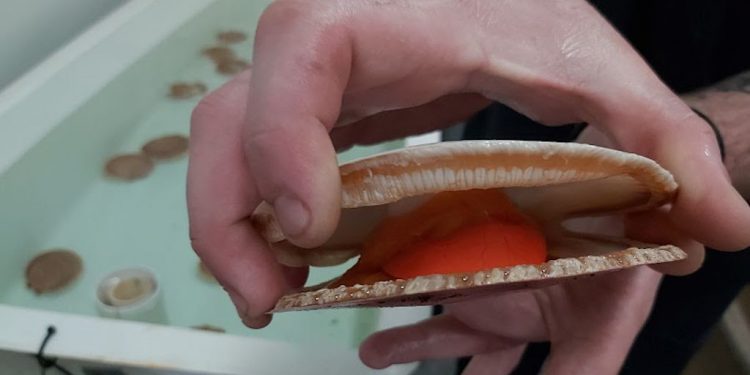A joint project between the Western Australian Government and fishing company One Sea are set to boost scallop stocks along WA’s MidWest, South West and South Coast fisheries.
Western Australian scallops are a premium product, destined mainly for high-end restaurants around Australia, and are becoming increasingly popular due to the quality of their meat, and its Marine Stewardship Council sustainability certification.
Under the two-year project plan, scallop spat will be propagated at DPIRD’s Hillarys research facility for release into WA coastal waters.
The science-based project will use innovative techniques to help grow a more resilient, productive, and sustainable saucer scallop industry for Western Australia, which has previously suffered as a result of marine heatwaves.
The research aims to reduce the variability in scallop numbers and catch rates by developing innovative propagation techniques to navigate through the delicate, and vulnerable larval phase in the controlled hatchery environment, before growing the spat in large numbers in hatchery.
Researchers will then determine the best way to release the juvenile scallops along the WA coastline, to increase fishery yields and improve consistency of catches.
As part of the project, Macquarie University, through the Fisheries Research and Development Corporation (FRDC), will develop molecular identification techniques, similar to the technology used in maternity/paternity tests and relative tracing, to allow hatchery-produced scallops to be identified when harvested in the wild months, or even years later.
This will enable researchers to assess survival and fishing rates and develop a better understanding of how long it takes for the scallops to grow to market size.
One Sea Pty Ltd, with support from DPIRD and FRDC, will use the outcomes of the research to investigate and assess the feasibility of developing a commercial scallop stock enhancement program, which will benefit the wider industry in WA.
Funding for the $2.7million project was delivered through the Department of Primary Industries and Regional Development (DPIRD) which contributed $1.6 million, the FRDC which provided a further $700,000, and WA scallop company, One Sea which funded $430,000.









